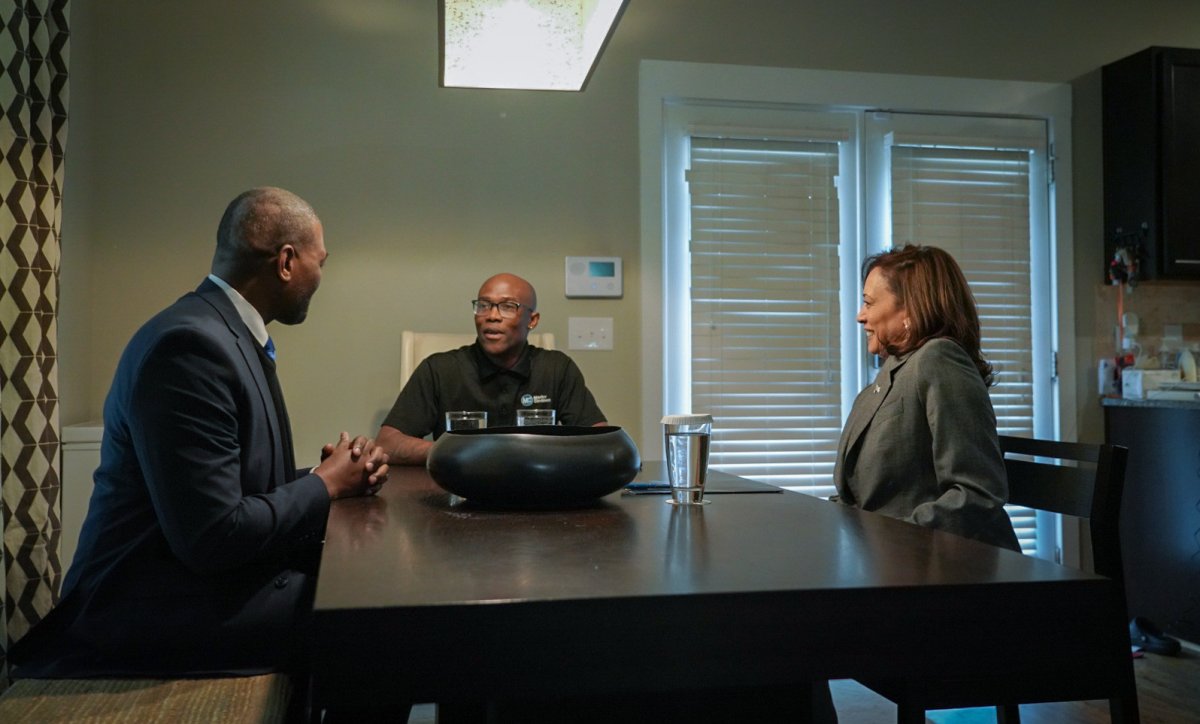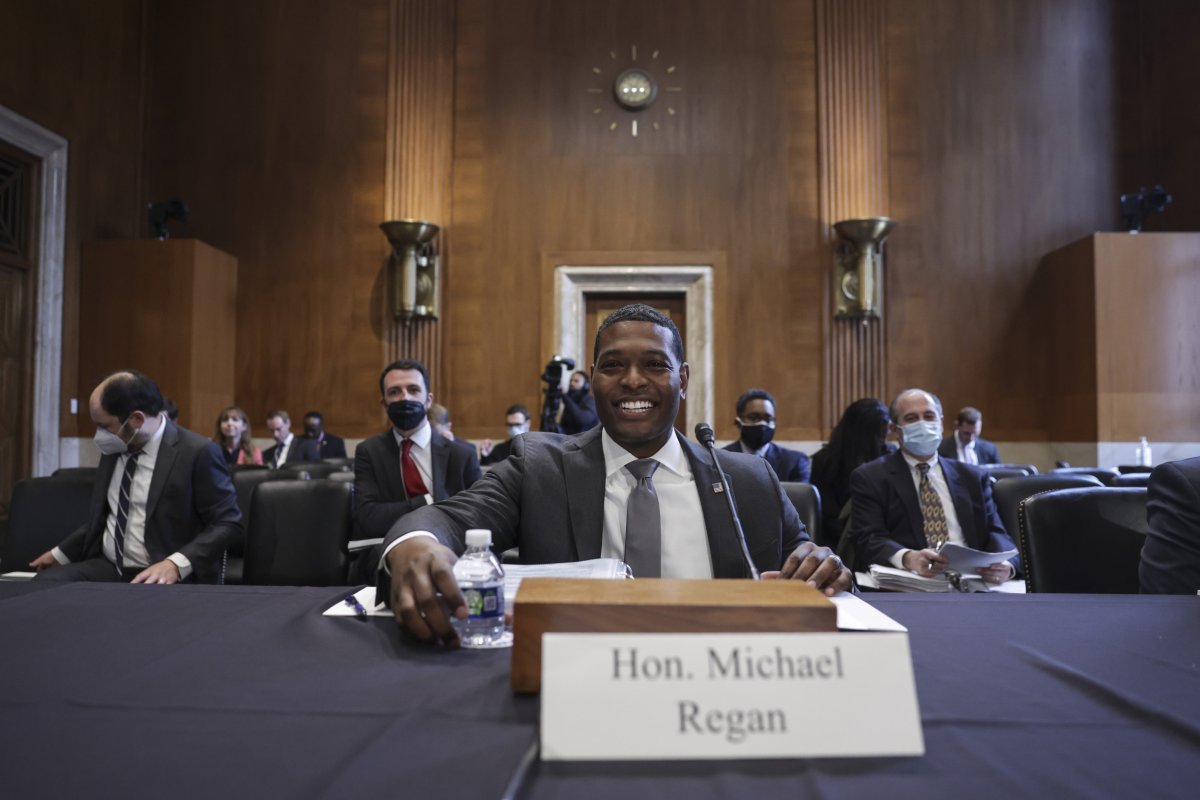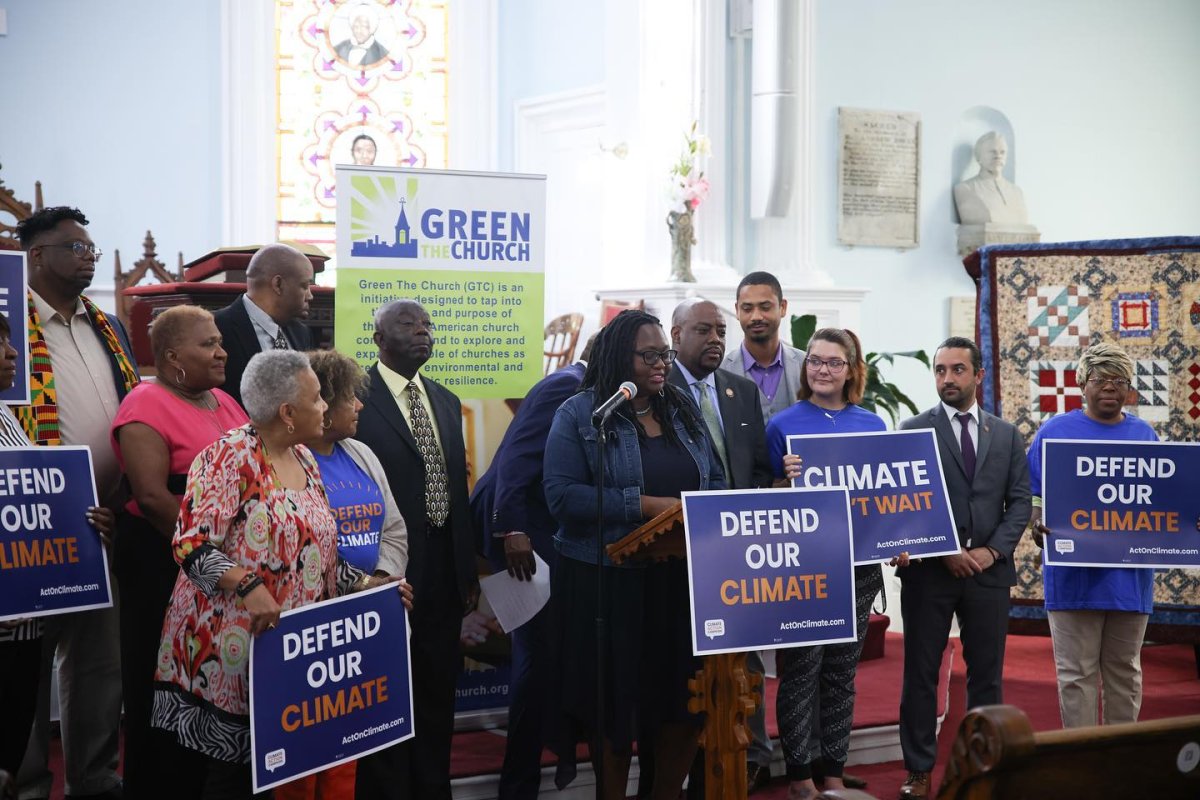Reverend Thurmond Neill Tillman is Pastor at First African Baptist Church in Savannah, Georgia, the country's oldest African American congregation, with roots going back to 1773. First African Baptist's church building dates to 1859, Tillman said, and upkeep and maintenance of a building that old takes money—especially when it comes to the energy bills.
That's why Tillman's church is planning ways to heat, cool and light the building more efficiently and affordably by adding new clean energy to the historic property.
"We are steeped in history but not stuck in it," Tillman told Newsweek.
The plan includes energy efficiency improvements, solar panels, battery storage for the solar power, and electric vehicle charging stations. Altogether the project will not only save energy but also turn the church property into a local renewable energy microgrid for the surrounding neighborhood.

"We are looking to cut back on energy costs, to be more efficient, but our reason for wanting to move to solar and this new way of energy efficiency is also to be an example to others," Tillman said.
Read more: How Much Do Solar Panels Cost In 2024?
Financing an ambitious project like this was, until recently, very difficult for churches and other nonprofit organizations, which were unable to take advantage of clean energy tax credits and unlikely to meet loan criteria from major banks.
"I always say that they are overlooked, underestimated and, as a consequence, they're underserved because they're not underwritten," clean energy entrepreneur Reginald Parker told Newsweek.
A Savannah native, Parker is Chairman of Freedmen Green Bank and Trust, a nonprofit that provides loans, grants and technical assistance to nonprofit organizations, churches and schools to reduce energy bills and tackle climate change. The bank and its partners are working with First African Baptist and other Black churches in Georgia to develop energy efficiency and clean energy projects.
"They can have an impact not only on their congregation but the community," Parker said. "What we call 'champion churches.'"
Freedmen Green Bank and Trust is among the groups affiliated with the Coalition for Green Capital, one of eight recipients of funding from the $20 billion Greenhouse Gas Reduction Fund, or GGRF, announced last Wednesday by the U.S. Environmental Protection Agency. The EPA said recipient groups will form a first-of-its-kind national financing network for lower-carbon energy, transportation and building projects at the community level.
The GGRF includes a new $14 billion National Clean Investment Fund and a $6 billion Clean Communities Investment Accelerator, both created by the Inflation Reduction Act (IRA). (Recipients of a third leg of the fund, the $7 billion Solar for All program, have not yet been announced.)
Even by Washington standards, $20 billion is big money. The GGRF is the single largest section of the IRA, the Biden administration's signature action on climate change, and the fund may well prove to be the single most transformative piece of that legislation because of its potential to reach so many communities and households.
Read more: Federal Solar Tax Credit Guide
Veterans of clean energy financing are calling the GGRF historic not just in its size but in its approach. The fund directs clean energy investments toward the communities that often bear a disproportionate burden of impact from pollution and climate impacts but which have been left out of many other federal clean energy initiatives.
Thousands of projects around the country from the "champion churches" in Georgia to energy improvements in low-income neighborhoods in Fresno, California, are primed and ready to make use of the coming surge of financing.
Collectively, these energy investments hold the promise of an elegant solution that tackles several problems at once, bringing down energy bills and greenhouse gas emissions while lifting up the economic prospects of some struggling parts of America.
"It's really clear that we're not going to achieve our climate change goals to decarbonize this country if we don't actually serve major parts of the country that have historically just been left behind," Dream.Org Vice President of Sustainability and Green for All National Director Jessie Buendia told Newsweek.
A Climate Action Downpayment
Buendia's organization is also part of the Coalition for Green Capital, which was awarded $5 billion from the GGRF's National Clean Investment Fund. Buendia described the new funding as a "downpayment" on climate action. While the billions in federal funding are impressive sums, they pale next to the estimated costs of achieving a clean energy transition.
"It's going to take trillions of dollars to solve the climate crisis," she said.
The coalition has more than a decade of experience working with dozens of state, local and nonprofit green banks. Those are government-owned or quasi-public banks that use government money to leverage private investment for climate and clean energy projects that traditional banks might overlook.
Michigan Saves is a green bank working with disadvantaged communities in the Detroit area. President and CEO Chanell Scott Contreras described her work with a resident who needed a new heating system.
"She was living without a furnace for two years using space heaters, unfortunately, which is unsafe," Contreras told Newsweek. Michigan Saves offered a loan for a high-efficiency furnace.
"When we talk about what the Greenhouse Gas Reduction Fund looks like on the ground, it's making homes safer and more comfortable for people affecting their day-to-day lives and their well-being," she said.
Lenwood Long is board chair of the Justice Climate Fund, which will receive $940 million from the GGRF to work with credit unions, green banks and Community Development Financial Institutions.
Long said organizations like those are more in touch with community level needs than are traditional banks.
"Main Street banks deal with Main Street, they don't deal with the heart and soul of American communities," Long told Newsweek. He said the Justice Climate Fund and other recipients of the GGRF funding will focus on places and people that have suffered discriminatory lending practices in the past.
"America is not a color-blind society, we are not we are not beyond systemic racism, institutional racism and all of those 'Isms,'" he said. "I think it's the 'Isms' that have kept marginalized and disadvantaged communities from enjoying the benefits of past programs that should have lifted them out of poverty and out of this environmental and climate exposure and toxic environment that they are exposed to now."

The $20B Cost Concerns in Congress
The scale and speed of the GGRF funding has raised concerns among some budget minders in Washington. The head of the EPA's Office of the Inspector General told a Congressional committee last year that the office lacked resources to fully "follow the money" that would flow from the GGRF and other IRA programs.
Republican opponents in Congress have targeted the GGRF as a "green slush fund," raising the possibility of conflicts of interest among funding recipients and warning that the speed of funding "opens the door to waste, fraud, and abuse."
The first piece of legislation that Republican-controlled House leaders brought forward last year would repeal the GGRF in favor of more support for mining, drilling and fossil fuel extraction.
The bill, H.R.1, passed the House last year on a partisan vote but has not been taken up by the Democrat-controlled Senate, and President Biden has said he will veto the bill if it reaches his desk.
GGRF recipients such as Lenwood Long dismissed the criticism.
"[They] always say that about programs that help poor people," Long said with a sigh. "Let's take the politics out and put the people in."
Lee Peterson is a senior manager in the project finance and consulting team at the national public accounting firm CohnReznick. Peterson said that as soon as the GGRF was being developed, applicants started getting in touch with his firm to set up the systems needed to properly vet projects and track spending.
"This is nobody's first rodeo on these large government programs," Peterson told Newsweek. "The accountability and transparency and auditability—all that is being built into the system from the very beginning."
Peterson has 20 years of experience with clean energy financing, and he said the GGRF marks a departure from the main way the government has tried to support clean energy in the past, which has been through credits and incentives in the tax code.
"The thing about the tax policy approach is that it pretty much keeps all the investment in Wall Street," he said. "So, it doesn't have the effect on individuals and communities."
The GGRF and other IRA programs blend tax credits with direct funding streams, greatly expanding access and improving the chances for more private investment, Peterson said.
"That's when I realized that the world had changed," he said.

An Inclusive Green Economy
Jessie Buendia at Dream.Org said that watching the GGRF develop has been a personal and emotional experience for her. Her parents emigrated from Mexico and struggled to make their way as new residents in the U.S., she said. Now she sees a chance to help make the economy more inclusive.
"Communities like the one that I'm from are at the center, you know, and not at the fringes fighting to try to get in," Buendia said.
Reginald Parker with Freedmen Green Bank and Trust said that long before he earned degrees at MIT and Georgia Tech, his early life in Savannah had its hardships. That's part of what makes the project with First African Baptist Church special for him, Parker said.
"I grew up poor and so I don't want any other kid to grow up with the same issues I did," he said. "You want to figure out how can you impact the place or places like where you grew up."
When Rev. Tillman reflected on what the clean energy investment will mean for his congregation, his thoughts naturally went to scripture.
"'The earth is the Lord's, and the fulness thereof,'" he quoted from Psalms. "We need to do what we can to preserve and to make good use of what God's given to us."
Correction April 16, 2024: This story was edited to correct the spelling of Chanell Scott Contreras's first name.
About the writer
To read how Newsweek uses AI as a newsroom tool, Click here.





